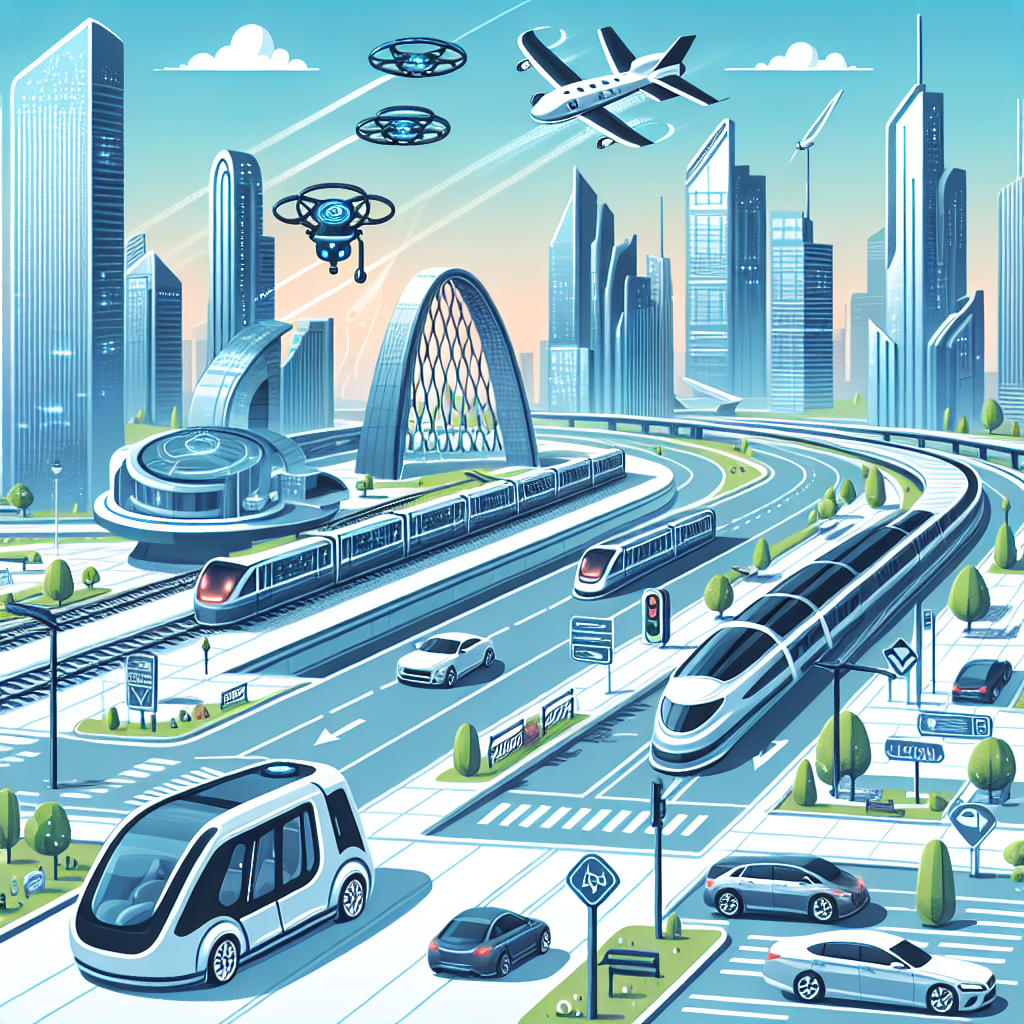Artificial Intelligence (AI) has been revolutionizing various industries, and the transportation sector is no exception. AI technology is rapidly transforming the way we move people and goods from one place to another, leading to increased efficiency, safety, and innovation. From self-driving cars to traffic management systems, AI is playing a crucial role in shaping the future of transportation.
One of the key benefits of AI in transportation is improved efficiency. AI-powered systems can analyze vast amounts of data in real-time, allowing for better route planning and optimization. This can lead to reduced travel times, lower fuel consumption, and decreased emissions. For example, AI algorithms can predict traffic patterns and adjust traffic signals accordingly to minimize congestion and improve traffic flow.
Another area where AI is making a significant impact is in autonomous vehicles. Self-driving cars use AI technology to navigate roads, interpret traffic signs, and avoid obstacles. These vehicles have the potential to revolutionize the way we commute, making transportation safer, more convenient, and more accessible. Companies like Tesla, Google, and Uber are investing heavily in autonomous vehicle technology, with the goal of bringing fully self-driving cars to the market in the near future.
AI is also being used to enhance public transportation systems. For example, AI-powered predictive maintenance systems can help identify potential issues with buses, trains, and other vehicles before they occur, reducing downtime and improving overall reliability. Additionally, AI algorithms can analyze passenger data to optimize routes, schedules, and pricing, leading to a more efficient and user-friendly public transportation system.
In the freight industry, AI is being used to streamline supply chain operations. AI-powered logistics platforms can track shipments in real-time, optimize delivery routes, and predict demand patterns. This can help companies reduce costs, improve delivery times, and enhance customer satisfaction. Autonomous drones and robots are also being used to automate warehouse operations, further increasing efficiency and reducing human error.
AI is not only improving efficiency in transportation but also enhancing safety. Advanced driver assistance systems (ADAS) use AI technology to monitor the road, detect potential hazards, and assist drivers in avoiding accidents. These systems can reduce the risk of collisions, improve driver awareness, and ultimately save lives. In the future, fully autonomous vehicles are expected to make transportation even safer by eliminating human error from the equation.
Overall, AI is driving innovation in the transportation sector by enabling new capabilities and enhancing existing systems. As technology continues to advance, we can expect to see even more exciting developments in the field of transportation. From flying taxis to hyperloop trains, the possibilities are endless when it comes to integrating AI into our transportation infrastructure.
Frequently Asked Questions (FAQs):
Q: How does AI improve traffic management?
A: AI algorithms can analyze traffic patterns in real-time and adjust traffic signals to minimize congestion and improve traffic flow. This can lead to reduced travel times and lower fuel consumption.
Q: Are autonomous vehicles safe?
A: Autonomous vehicles are designed to prioritize safety and are equipped with advanced sensors and AI technology to navigate roads, interpret traffic signs, and avoid obstacles. While accidents involving autonomous vehicles have occurred, they are generally considered to be safer than human-driven vehicles.
Q: How is AI being used in public transportation?
A: AI is being used in public transportation to optimize routes, schedules, and pricing, as well as to improve maintenance and reliability. AI-powered systems can analyze passenger data to better meet the needs of commuters and enhance the overall public transportation experience.
Q: What are the benefits of AI in freight transportation?
A: AI is being used in freight transportation to track shipments in real-time, optimize delivery routes, and predict demand patterns. This can help companies reduce costs, improve delivery times, and enhance customer satisfaction.
Q: What is the future of AI in transportation?
A: The future of AI in transportation is bright, with advancements in autonomous vehicles, flying taxis, hyperloop trains, and other innovative technologies on the horizon. AI will continue to play a crucial role in shaping the future of transportation by increasing efficiency, safety, and convenience.

